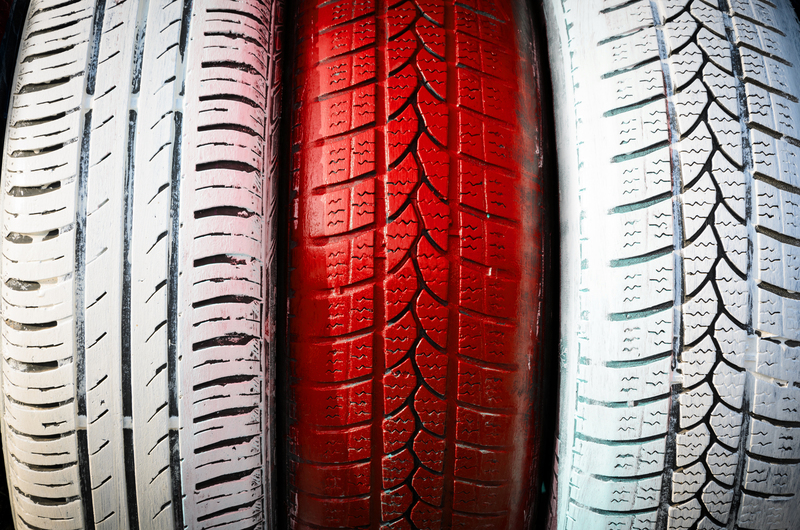De-cluttering: A Pathway to a More Peaceful Life
De-cluttering is much more than cleaning or organizing your living space. It is a transformative process that can bring remarkable positive changes in your mental well-being, lifestyle, and even your daily productivity. In this comprehensive article, we will explore the many ways that de-cluttering serves as a pathway to a more peaceful life, covering practical tips, psychological perspectives, and real-life benefits.
What Is De-cluttering?
De-cluttering, in simple terms, is the process of eliminating unnecessary items from your home or workspace to create a more organized and serene environment. Decluttering can include removing physical clutter, digital clutter, or even emotional baggage, but the focus often begins with physical possessions.
Why Is De-cluttering Important?
- Creates physical space and order
- Reduces stress and anxiety
- Enhances focus and productivity
- Fosters a calming ambiance
- Helps to discover what truly matters

The Link Between Clutter and Mental Health
Numerous studies have shown a direct relationship between clutter and mental well-being. A disorganized, chaotic environment can lead to feelings of overwhelm, anxiety, and even depression. Conversely, a tidy, minimalist space encourages a sense of peace and mental clarity.
The Science Behind Clutter and Stress
- Clutter Impacts Cortisol Levels: Research has found that high levels of clutter can raise cortisol, the stress hormone, especially among women.
- Overstimulation: Clutter bombards our minds with excessive stimuli, making it hard to relax or focus.
- Decision Fatigue: Having too many belongings increases the number of decisions we must make each day, which can be mentally exhausting.
Benefits of De-cluttering for a Peaceful Life
- Enhanced Productivity: A clutter-free environment allows for improved focus and efficiency, both at home and at work.
- Improved Mental Health: De-cluttering can reduce feelings of anxiety, sadness, and overwhelm.
- Greater Creativity: Clear spaces foster creativity by allowing your mind to wander freely.
- Better Sleep: A tidy bedroom promotes restful sleep, essential for overall wellness.
- Higher Self-Esteem: Taking control of your environment builds confidence and a sense of accomplishment.
Different Approaches to De-cluttering
1. The KonMari Method
Popularized by Marie Kondo, this method encourages you to keep only those items that "spark joy" and thoughtfully part with the rest. It emphasizes gratitude for possessions and mindful organization. Each item is evaluated not by utility, but by emotional resonance.
2. Minimalism
Minimalism is a lifestyle choice that involves living with fewer possessions. This approach to de-cluttering focuses on only keeping what is truly needed and valued in life. It's about quality over quantity, and the philosophy often spreads from your home to your calendar, relationships, and more.
3. Room-by-Room Decluttering
- Start with one space at a time
- Break it down into manageable tasks
- Sort, donate, recycle, or discard
4. The Four-Box Technique
This practical method involves using four boxes labeled: Keep, Donate, Trash, Store. Every item in a room is placed into one of these boxes, forcing clear decision-making and efficient sorting.
Step-by-Step Guide to De-cluttering Your Home
Step 1: Set a Clear Intention
Before lifting a single box, set your motivation. Why do you want to declutter? Whether it's to reduce stress, create more space, or live more simply, having a clear goal will keep you focused.
Step 2: Begin with a Small Space
Starting with a single drawer or shelf can help build momentum. The feeling of accomplishment will motivate you to tackle larger areas.
Step 3: Sort and Categorize
- Group similar items together
- Decide what to keep based on usefulness and emotional value
- Set aside what you no longer need for donation or recycling
Step 4: Organize What Remains
An organized space is key to maintaining a clutter-free home. Consider using storage containers, shelves, and labels to keep everything in its place.
Step 5: Create a Maintenance Routine
- Schedule regular decluttering sessions
- Practice the "one in, one out" rule
- Stay mindful of new belongings entering your space
Digital De-cluttering: Clearing Mental Pathways
De-cluttering isn't limited to our physical environments. Digital clutter such as overflowing email inboxes, countless photos, or disorganized files can also disrupt your mental peace. Here are ways to address digital chaos:
Tips for Digital Decluttering
- Unsubscribe from unnecessary newsletters
- Organize files into clearly labeled folders
- Delete or back up old photos and documents
- Schedule a regular cleanup of your desktop and downloads folder
Common Obstacles to Decluttering and How to Overcome Them
1. Emotional Attachment
It's often difficult to part with items due to sentimental value. Ask yourself: Does this possession serve a purpose or bring genuine joy? If the answer is no, consider letting go while treasuring the memory.
2. Overwhelm and Procrastination
If the task seems daunting, break it into smaller steps. Focus on one area at a time and reward yourself for each milestone reached. Recruit a friend or family member for motivation if needed.
3. Fear of "What If?"
The anxiety of potentially needing something in the future can cause us to cling to clutter. Practice trusting that you can live without these items, and remember the freedom gained by releasing them.
Decluttering Beyond the Home: A Holistic Approach
True peace comes from decluttering all aspects of life. Aside from your physical environment, consider the following areas:
- Relationships: Foster positive, meaningful connections and distance yourself from toxic influences.
- Schedules: Minimize commitments that don't align with your values or goals.
- Mindset: Practice mindfulness, letting go of negative thoughts or limiting beliefs.
Maintaining a Clutter-Free Life: Practical Tips
- Adopt mindful shopping habits. Avoid impulse buying by making conscious decisions about what truly adds value to your life.
- Regularly evaluate your belongings. Reassess possessions seasonally to ensure everything serves a purpose.
- Set boundaries. Limit what comes into your home by politely declining gifts or free items you do not need.
- Create a donation station. Make it easy to part with items by keeping a donation box in a convenient spot.
Decluttering as a Family or Household
When more than one person shares a space, decluttering can become a shared project. Here's how to ensure it's a harmonious experience:
- Communicate openly about the benefits and goals behind decluttering
- Include everyone in decision-making, especially children
- Model positive attitudes toward letting go and organizing
- Celebrate achievements as rooms and shared spaces become more peaceful
The Financial Benefits of Simplifying Your Space
De-cluttering isn't just about creating peace of mind--it can also benefit your wallet.
- Sell unwanted items: Turn your clutter into cash through garage sales or online marketplaces.
- Reduce future spending: With fewer possessions, you're less likely to buy duplicates or unnecessary items in the future.
- Save on storage solutions: A decluttered home eliminates the need for extra storage units or furniture.
De-cluttering for Special Circumstances
Moving House
Downsizing or relocating presents a prime opportunity for deep decluttering. It makes packing, moving, and settling into a new space far easier and less stressful.
Life Transitions
Major life events--such as marriage, retirement, or the birth of a child--often call for a reevaluation of your belongings. Decluttering during transitions helps you let go of the old and welcome new beginnings.
Assisting Others
Helping elderly relatives or friends downsize can be emotionally loaded. Approach with empathy, patience, and respect for their memories and attachments.
Decluttering and Sustainability
Responsible decluttering can also support an environmentally friendly lifestyle. Donate usable items, recycle where possible, and avoid simply sending things to a landfill. This sustainable approach not only creates peace in your home but also benefits the broader world.

Starting Your De-cluttering Journey Today
There's no perfect time to begin your decluttering journey--the sooner you start, the sooner you'll experience the peace and clarity it brings. Remember, de-cluttering is not a one-time event but a lifelong habit. By simplifying your space and your life, you are paving the way to a more peaceful, intentional, and joyful existence.
- Be patient and gentle with yourself throughout the process.
- Celebrate your successes, big or small.
- Share your de-cluttering experiences to inspire others.
Conclusion: Embrace the Peace of a Clutter-Free Life
In a world that often equates busyness with success, making space--both physically and mentally--can be the greatest gift you give yourself. Decluttering is a profound act of self-care, empowering you to focus on what truly matters. Whether you're seeking to reduce stress, improve your health, or create a welcoming sanctuary, the path to a more peaceful life begins with letting go.
Start small, be consistent, and notice how each cleared space brings a sense of renewal and tranquility. As you continue to eliminate clutter, you'll discover not just a cleaner space, but a calmer mind and a happier, more contented you.